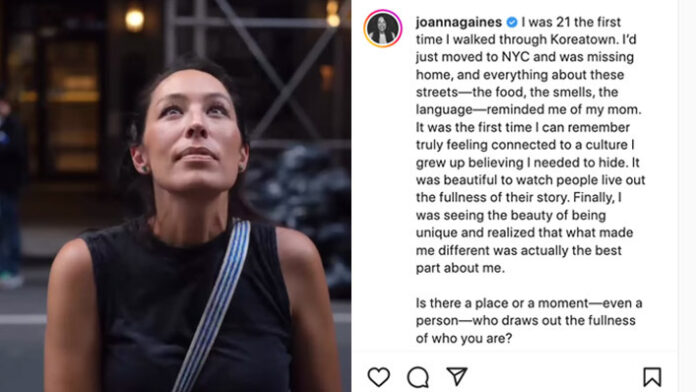Joanna Gaines is making waves with her new memoir and companion podcast, The Stories We Tell. But in her fourth episode of the new podcast, she breaks down in tears as she talks with her mom, moving her audience to support and empowerment.
Joanna Gaines Speaks out in The Stories We Tell
You may have been living under a rock if you don’t know TV reality stars Chip and Joanna Gaines. The Fixer Upper stars and owners of Magnolia are loved by many for their authenticity, as they share about their family life and faith.
And Joanna Gaines has a new memoir called The Stories We Tell, in which she tells her life story, including her struggle with being half-Korean. In her debut post on Instagram about the book, she wrote, “I’m feeling a little bit of everything: nervous, excited, vulnerable, but mostly hopeful. That any part of my story might shine a light on the fullness of yours.”
Check out her post here:
View this post on Instagram
The Stories We Tell, which Joanna Gaines characterizes as “Messy and winding and beautiful,” is discussed with guests in a four-part podcast, which was released on November 7, 14, 21, and 28th, with an introduction debuting on November 4, 2022.
In the fourth episode of The Stories We Tell podcast, titled “The Stories We Tell: Joe’s Mom,” Joanna Gaines’ mother, Nan Stevens, shares about her childhood in South Korea, her “journey to America in the 1970s with Jo’s dad,” and “how she overcame the feelings of being an outsider and learned to embrace her culture and pass it on to her three American daughters.”
On Instagram, Joanna Gaines shared a photo of her parents, celebrating their anniversary.
View this post on Instagram
According to what Nan shared in The Stories We Tell podcast, she felt like an outsider both in South Korea and when she moved to the United States. And she adapted to these painful feelings by developing perfectionist tendencies so she could fit in and appear more like an American woman.
As Nan explained it, although she learned to love her heritage, her insecurities and some of the same experiences of discrimination were felt by her daughters.
And this is where Joanna’s story comes in.

